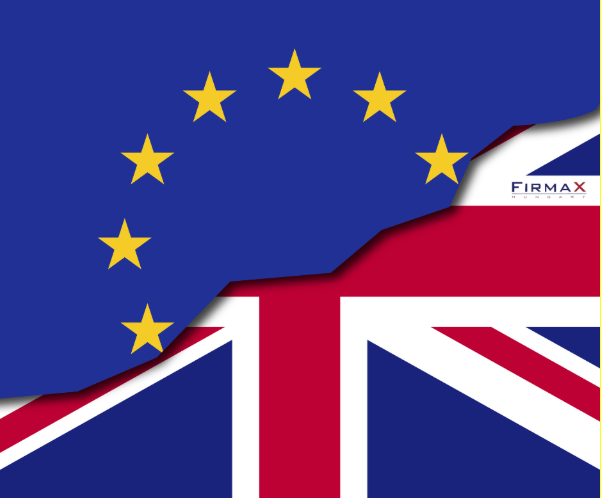For decades, the United Kingdom was considered one of the world’s most dynamic business hubs, fast to register a company, flexible with taxation, and attractive to global entrepreneurs. But since Brexit, the landscape has changed dramatically. International founders, investors, and skilled professionals are increasingly shifting their focus toward the European Union rather than the UK.
Below are ten key reasons why entrepreneurs now see the EU as the more stable, scalable, and strategically valuable environment for long-term business success.
- Access to a Single Market of 450 Million Consumers
The EU remains the world’s largest integrated market. When an entrepreneur establishes a company in an EU member state, they instantly gain direct access to 27 countries without additional trade barriers.
In contrast, UK companies must navigate complex trade agreements, customs declarations, and sector-specific authorizations, making scaling slower and more expensive.
- The EU Offers a More Attractive Talent Pathway
One of the biggest challenges for businesses today is securing highly skilled workers. The EU’s modernized talent framework, including the increasingly popular blue card system, gives entrepreneurs predictable, structured ways to bring in qualified professionals.
The UK’s post-Brexit immigration system, on the other hand, is more restrictive and significantly more costly, especially for startups or early-stage companies trying to build a diverse workforce.
- Easier Employee Mobility Across Borders
In the EU, once a company has established itself, relocating employees between member states is relatively straightforward. For modern companies operating across multiple countries, this is a major advantage.
The UK is now isolated in this regard, requiring separate permits for each overseas movement, which increases both compliance burden and HR costs.
- A More Stable Regulatory Environment
The EU’s regulatory framework, although complex, is predictable. Long-term directives, standardized compliance rules, and multi-year planning cycles give companies certainty.
Since Brexit, the UK’s regulatory environment has been marked by rapid changes, shifting standards, and inconsistent sector rules. For entrepreneurs building scalable businesses, stability is often more important than flexibility.
- Better Access to EU Funding, Innovation Grants, and R&D Support
The EU invests heavily in research, digitalization, sustainability, and innovation. Entrepreneurs can access:
– Horizon Europe
– Digital Europe Programme
– Regional development grants
– Startup and SME financing channels
UK businesses lost access to most EU funding mechanisms, and domestic alternatives are significantly more limited.
- Lower Barriers for Cross-Border Company Formation
Founders who want to operate in multiple markets find the EU significantly easier to navigate. Many countries offer streamlined digital company formation, e-residency programs, cross-border tax treaties, and business-friendly administrative processes.
For entrepreneurs entering the EU for the first time, expert guidance on immigration procedures is often enough to build a fully compliant, long-term presence.
- More Competitive Corporate Tax Environments
Although corporate tax rates vary widely across the EU, several member states offer highly attractive regimes:
– Hungary (9% CIT)
– Bulgaria
– Ireland
– Latvia
– Cyprus
While the UK still aims to position itself as competitive, the post-Brexit tax system has become more volatile, with frequent policy shifts and reduced predictability.
- Stronger Integration With Global Supply Chains
The EU’s global trade agreements, over 40 full trade deals give businesses easier access to international markets. Priority trade lanes, reduced tariffs, and multinational manufacturing networks make the EU a superior base for export-oriented founders.
Brexit has forced UK companies into more complex customs arrangements, increasing delays and compliance challenges.
- More Favorable Conditions for Long-Term Residency and Citizenship
Many EU countries actively encourage foreign founders to settle permanently by offering:
– entrepreneur visas
– startup residency permits
– long-term investor programs
– simplified naturalization pathways
The UK’s approach is far more restrictive, and long-term settlement is harder to obtain for most entrepreneurs.
- A Better Environment for Scaling Modern Digital Businesses
European countries have become increasingly aggressive in supporting digital entrepreneurship:
– digital infrastructure investment
– remote company administration
– online government services
– startup incentives and innovation ecosystems
Startups in SaaS, consulting, mobility, AI, fintech, and e-commerce find the EU’s business environment more aligned with rapid, cross-border digital expansion.
The UK, by comparison, faces challenges attracting global founders and keeping pace with unified EU-wide digital frameworks.
Brexit has not destroyed the UK’s potential—but it has reshaped the competitive landscape. Today, entrepreneurs prefer the EU because it offers what fast-growing companies value most: stability, talent mobility, access to markets, predictable regulation, and long-term opportunities for expansion.
For founders who want to establish a presence inside the EU, understanding local immigration rules and choosing the right market-entry strategy is essential. With the right guidance and the right structure, entrepreneurs can strategically position their business inside the world’s largest single market—and build a stronger global future.

